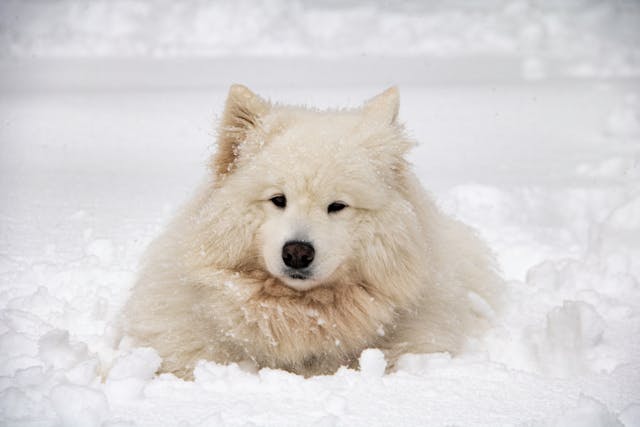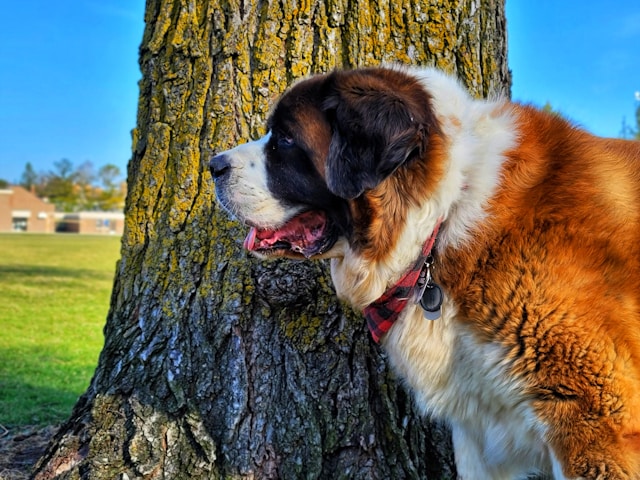Dog fur is a marvel of nature, boasting a fascinating array of colors, textures, and purposes. From the sleek, shiny coat of a Dalmatian to the fluffy, insulating fur of an Alaskan Malamute, canine fur serves a multitude of functions beyond mere aesthetics. This diverse range of fur types has evolved over centuries, adapted to suit the needs of different breeds in various climates and environments.
Here are some interesting facts about dog fur:
Variety: Dogs have an incredible range of fur types, from short and smooth to long and curly, and everything in between. This variety is due to selective breeding over thousands of years for specific traits. Poodles, Bichon Frises, Irish Water Spaniels, Spanish Water Dogs, etc. are all known for their curly locks.
Insulation: Their fur serves as insulation, helping them regulate their body temperature in various weather conditions. Breeds adapted to colder climates tend to have denser fur with an undercoat for added warmth. For example, Huskies, Samoyeds, and other Arctic dogs have dense, insulating undercoats and longer guard hairs that provide protection against the cold. This double-layered fur helps to trap heat close to their bodies and repel moisture, keeping them dry and warm.

Waterproofing: Certain breeds have fur that is naturally water-resistant or even waterproof, such as the coats of many retrievers. This feature helps them stay dry when swimming or in wet environments. Dogs like Newfoundlands, Irish Water Spaniels, Golden Retrievers, and Portuguese Water Dogs all have water-resistant or repellant coats to some degree.
Coloration: The color of a dog’s fur can vary widely and is determined by genetics. Some dogs have solid coats, while others have patterns like spots or stripes. Additionally, some breeds’ fur can change color as they age.
Shedding: Most dogs shed their fur as part of a natural cycle, with some breeds shedding more than others. This process helps them get rid of old or damaged hair and can vary depending on factors like breed, season, and health. Breeds with double coats, like Huskies, German Shepherds, and Golden Retrievers, tend to shed a lot. They typically have a thick undercoat that sheds heavily, especially during seasonal changes. Other breeds known for significant shedding include Labrador Retrievers, Bernese Mountain Dogs, and Saint Bernards. Regular grooming can help manage shedding, but it’s essential to be prepared for frequent brushing and vacuuming with these breeds.

Protection: Fur provides protection against external elements like sun exposure, insect bites, and minor cuts or scratches. In some breeds, like the Komondor or Puli, their unique corded coats historically served as protection from predators.
Sensory Function: Dogs’ fur is not just about looks; it also serves sensory functions. Whiskers, a type of specialized hair called vibrissae, are highly sensitive and help dogs navigate their surroundings by detecting changes in air currents.
Growth Rate: The rate of fur growth varies among different breeds and individuals. Factors like genetics, nutrition, and overall health can influence how quickly a dog’s fur grows.
Seasonal Changes: Some dogs undergo seasonal shedding, commonly known as “blowing their coat,” where they shed their undercoat to prepare for changes in temperature. This shedding can be quite dramatic in breeds like Huskies or Malamutes.
South Boulder Mobile Dog Grooming & Beyond
Understanding a dog’s fur helps owners better care for their furry friends and appreciate the unique qualities of each breed. Keeping a dog’s fur healthy often requires regular grooming, including brushing, bathing, and trimming. Proper grooming not only keeps their coat looking good but also helps prevent matting, reduce shedding, and promote skin health. Get a fast quote from Collar Cuts for your dog’s grooming today and don’t forget, we come to you! Our mobile salon services the following areas:
Arvada, Eastlake, Westminster, Lakewood, Broomfield, Superior, Lafayette, Louisville, Erie, Thornton, Northglenn, Federal Heights, South Boulder, and Wheat Ridge.
Sources:
Petmd.com
madpaws.com
vcahospitals.com
secondchancepet.net
Openai.com

